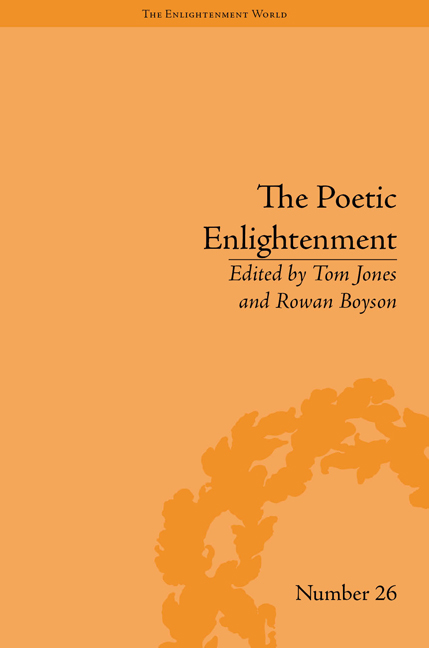Book contents
- Frontmatter
- CONTENTS
- Acknowledgements
- List of Contributors
- General Introduction
- I Poetic Knowledge and the Knowledge of Poetry
- II Poetic Theories of the Social Self
- 5 Introduction
- 6 Hobbes and Davenant: Poetry as Civil Science
- 7 Facing the Misery of Others: Pity, Pleasure and Tragedy in Scottish Enlightenment Moral Philosophy
- 8 Poetical Stoical Shaftesbury
- 9 Morality as a Discourse of the Imagination
- III Enlightenment and Romantic Poetologies
- Notes
- Index
5 - Introduction
from II - Poetic Theories of the Social Self
- Frontmatter
- CONTENTS
- Acknowledgements
- List of Contributors
- General Introduction
- I Poetic Knowledge and the Knowledge of Poetry
- II Poetic Theories of the Social Self
- 5 Introduction
- 6 Hobbes and Davenant: Poetry as Civil Science
- 7 Facing the Misery of Others: Pity, Pleasure and Tragedy in Scottish Enlightenment Moral Philosophy
- 8 Poetical Stoical Shaftesbury
- 9 Morality as a Discourse of the Imagination
- III Enlightenment and Romantic Poetologies
- Notes
- Index
Summary
The notion of a ‘social self’ is a tricky one. In the hands of an anthropologist like Clifford Geertz the ‘self’ is constituted by the society, so in his famous account of the Balinese their notion of a ‘person’ is interwoven with, for example, a conception of ‘time’ as part of an irreducible holistic symbolic structure. But despite some claims (cited by Boyson), this is not prefigured in the Enlightenment use made of ethnography. The Enlightenment human scientist uses ethnography, along with history, as the staples of a comparative method that aims to render social experience ‘orderly’.
Poetry was grist to that mill in two related respects. First it is a species of evidence. Perhaps the most celebrated example is the Ossian debate. Hugh Blair defends the authenticity of the poems. He locates them in the first, hunter, stage of human society. Drawing implicitly on Blackwell's Homer, he affirms that the language and style of the poetry conforms to the manners of that stage. There is an implicit Lockean developmental framework in operation. Hence Blair's declaration that the ‘ideas of men at first was all particular. They had not the words to express general conceptions’ and it is proof of Ossian's authenticity that he ‘accordingly, almost never expresses himself in the abstract’.
The second way the human scientists used poetry is an extension of the first. Blair again is an apt witness. In his lectures he professes that ‘all Languages are most figurative in their early state … imagination exerts great influence over the conceptions of men, and their method of uttering them; so that, both from necessity and from choice, their Speech will, at that period, abound in Tropes’. In part this is due to his subscription to the commonly held view (from Vico to Turgot to Herder) of the original ‘poverty’ of language. When faced with the ‘scantiness of proper expressions’, the savage ‘clothes every conception in image and metaphor’.
- Type
- Chapter
- Information
- The Poetic EnlightenmentPoetry and Human Science, 1650–1820, pp. 59 - 62Publisher: Pickering & ChattoFirst published in: 2014

